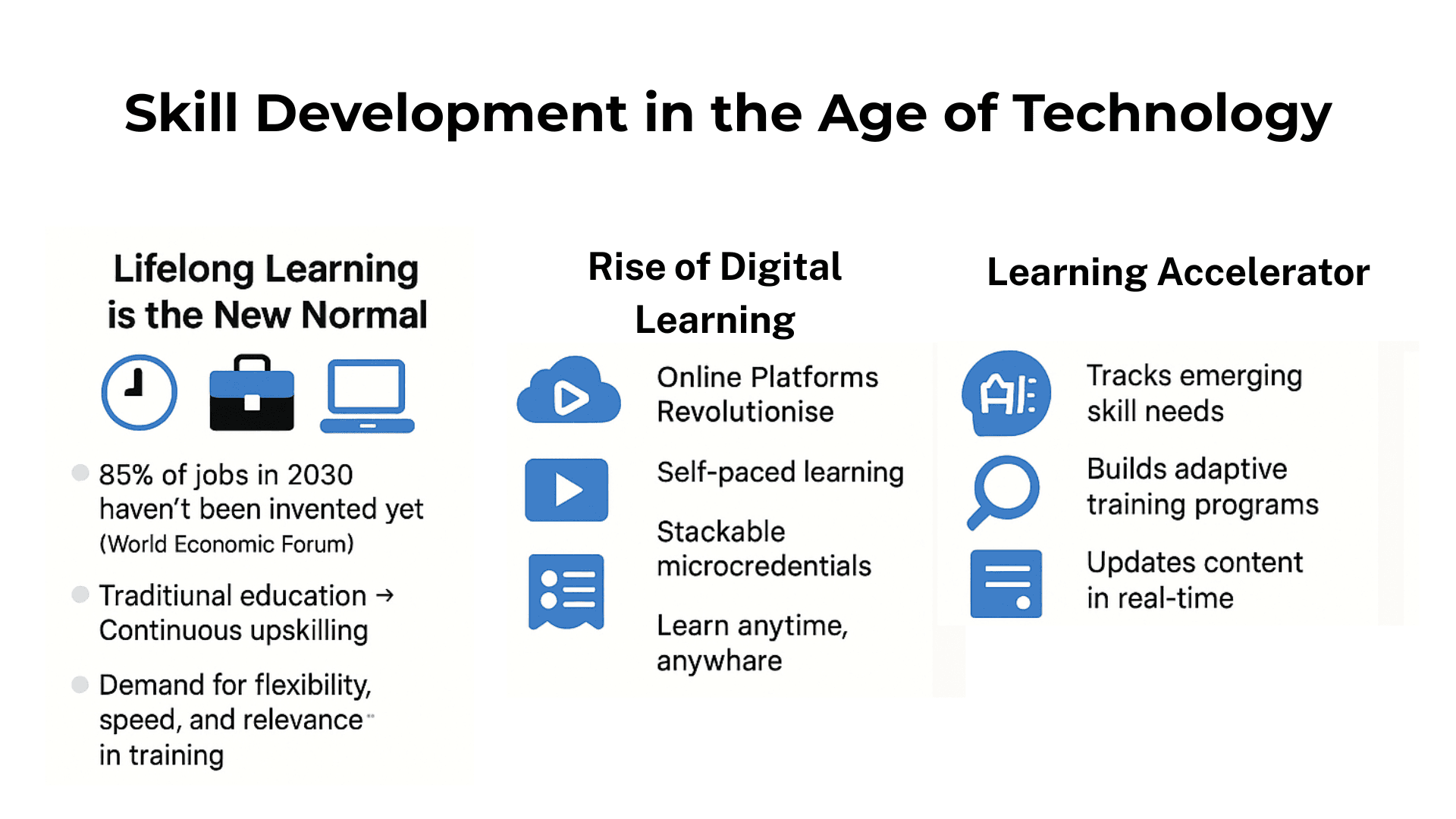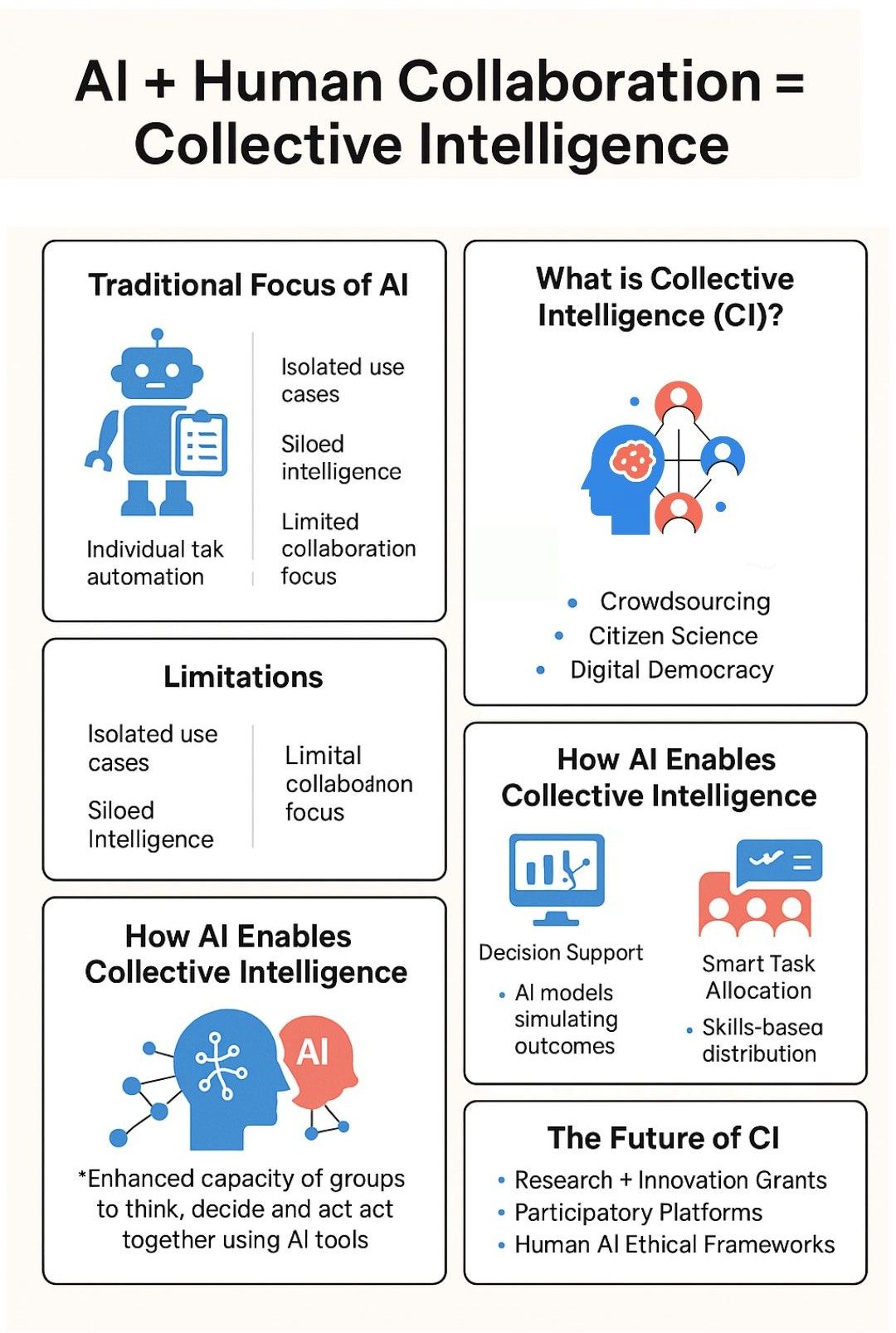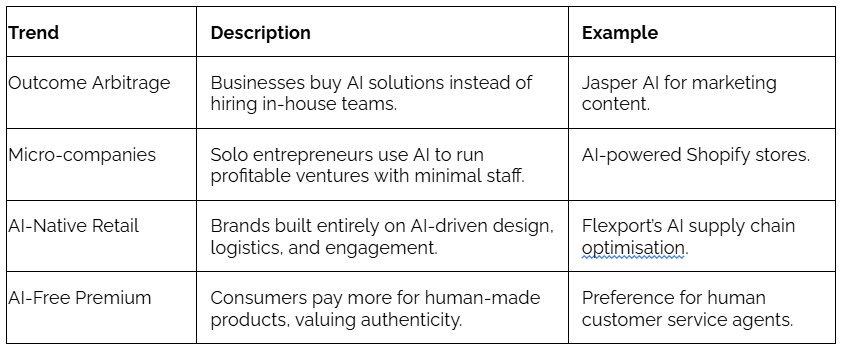business resources
How AI is Quietly Rewiring Our Societies
19 Jun 2025, 5:08 pm GMT+1
How AI Is Quietly Rewiring Our Societies
Step into the future with AI, where innovation is not just automated, it’s elevated. From transforming business models to reshaping the workforce, AI is set to be the driving force of change. By 2025, AI's global market will surge to $190.61 billion, offering immense potential while also raising important ethical and societal challenges.
As we enter the age of artificial intelligence (AI), we stand at the precipice of one of the most profound technological transformations in human history.
By 2024, global spending on AI systems is expected to exceed $110 billion, with businesses rapidly adopting AI to enhance operations and customer experiences. AI is no longer confined to research labs or tech giants, its influence is spreading across industries, from healthcare to finance and education.
According to McKinsey, AI has the potential to add $13 trillion to the global economy by 2030, representing a 1.2% boost in global GDP annually.
AI is no longer just a tool for automating tasks, it's a catalyst for innovation, reshaping industries, and driving global change.
From healthcare to finance, AI is enhancing decision-making, optimizing business processes, and creating new business models.
In fact, a study by PwC estimates that AI could contribute up to $15.7 trillion to the global economy by 2030. Yet, while AI’s potential is undeniable, its adoption raises significant challenges. Beyond the technology, organisations must address ethical, societal, and workforce implications.
The choices we make today in steering AI development will determine how it integrates into our world, impacting everything from job markets to privacy rights, and shaping the future trajectory of human progress.
The Impact of Artificial Intelligence on Human Society
Artificial intelligence has a profound effect on human society. The pervasive impact of AI affects everything, including work, education, healthcare, and business.
Redefining work in the AI era
The traditional paradigm of work is undergoing a profound transformation. We’re moving beyond simple task automation to a model where AI amplifies human capabilities in unprecedented ways. In boardrooms and shop floors alike, the question is no longer whether AI will impact work, but how to optimise this collaboration for maximum value.
Consider how AI is transforming professional roles:
- Accountants are evolving into strategic advisors as AI handles routine calculations.
- Healthcare professionals leverage AI diagnostics to spend more time on patient care.
This shift is not about replacement, it’s about enhancement and the elevation of human potential.
Case Study: The Cleveland Clinic
The Cleveland Clinic in Ohio provides a compelling case study of AI's transformative impact on professional roles, particularly in healthcare. In collaboration with IBM, the clinic has integrated AI to revolutionise the personalisation of healthcare plans.
By aggregating and analysing extensive datasets, AI enables the clinic to tailor treatment strategies to each patient’s unique needs, moving beyond traditional one-size-fits-all approaches.
This AI-driven approach enhances diagnostic precision, optimises treatment plans, and improves patient outcomes, allowing healthcare professionals to focus more on direct patient care. This collaboration exemplifies how AI is not replacing medical professionals but empowering them to deliver more personalised, effective, and data-driven healthcare solutions.

Skills and workforce development
The skills landscape is also evolving at a dizzying pace. Whilst technical literacy remains crucial, the most valuable skills are increasingly those that AI cannot easily replicate: critical thinking, emotional intelligence, and complex problem-solving. Organisations must focus on developing:
- Adaptive Learning Capabilities
- Digital Fluency
- Ethical Decision-Making
- Cross-Functional Collaboration
- AI Literacy and Understanding
Skill development in the age of technology
The evolving job market has transformed skill development into a lifelong process, driving the rise of online learning and professional training programs. Over the past decade, new approaches such as self-paced learning, massive open online courses (MOOCs), and stackable microcredentials have gained prominence.
These platforms, including Coursera, Udacity, and edX, provide accessible, high-quality training for both current workers and those entering the workforce. Their flexibility allows learners to balance education with work and other responsibilities, enabling both traditional and nontraditional students to earn industry-recognised credentials and advance their careers.
While current skill development initiatives are valuable, a more agile, proactive approach is needed to address rapidly changing job demands.
However, futurist Erik Brynjolfsson (researching for Cornell University) suggests that AI itself can accelerate learning by:
- Identifying evolving job requirements.
- Developing responsive training programs.
- Continuously refining educational content for relevance.
These technologies could also continuously evaluate and refine training to ensure its ongoing relevance. AI, the very force driving these shifts, may also be the key to effectively managing them.
AI in education: Opportunities and challenges
AI Use in Education Delivery
The integration of AI in education has the potential to transform teaching and learning by enhancing efficiency and personalisation. By automating routine tasks and providing intelligent support, AI can free up valuable time for educators to focus on meaningful student engagement. However, the adoption of AI in education needs to be done wisely.
AI can help reduce teacher workloads by assisting with lesson planning, content adaptation, and administrative tasks. It can simplify text for different age groups, generate definitions, create quizzes with tailored feedback, and automate reports and emails.
A 2023 Department for Education (DfE) report on English state schools found that 72% of teachers viewed their workload as unmanageable, with 66% spending less than half their working hours teaching due to administrative and planning tasks.
Key applications include:
- Lesson planning & content adaptation: AI simplifies texts for different age groups, generates quizzes, and automates reports.
- Accessibility support: AI powers screen readers (e.g., NVDA, JAWS) and speech-to-text tools for students with disabilities.
- AI tutors: Platforms like Khan Academy’s Khanmigo offer personalised learning pathways, though some question their true personalisation.
On a positive note, AI can play a key role in improving accessibility by assisting students with disabilities, such as powering screen readers for visually impaired learners and enabling speech-to-text transcription for those with hearing impairments.
AI-powered screen readers like NVDA and JAWS use natural language processing to read out digital content, helping visually impaired students access textbooks, articles, and online learning platforms.
Additionally, AI chatbots can answer general queries and support students outside traditional classroom hours, reducing the pressure on educators to respond to emails beyond their working day.
AI Use by Educators in Assessment
AI has the potential to support exam setting, marking, and grading, as well as the delivery and invigilation of remote assessments. However, these technologies are still in early development, and concerns around fairness, accountability, and validity make educators hesitant to rely on AI for major assessments like GCSEs and national exams.
While AI could reduce human errors and inconsistencies in marking, experts argue that fully outsourcing exam grading to AI presents significant challenges. Human markers can be influenced by situational factors such as fatigue, leading to variations in grading, especially for complex responses.
Despite these concerns, there may be opportunities for AI to assist in marking, improving efficiency while maintaining human oversight.
Learner Use of AI
Some educational institutions, including International Baccalaureate schools and Russell Group universities, are encouraging students to use AI tools in their work. They believe this approach helps learners develop a balanced understanding of AI, its limitations, and ethical use while also preparing them with essential skills for the future workforce.
However, some education experts worry that AI reliance may hinder the development of writing, critical thinking, and literacy skills. AI-generated text could also homogenise writing styles, reducing personal creativity, particularly in subjects like art and music.
Additionally, concerns exist over biases in large language models (LLMs), as their training data often overrepresents English-speaking cultures, potentially limiting social and cultural nuance in their outputs.

AI as a Tool for Collective Intelligence
AI has largely been applied to replicating human capabilities in isolated tasks, either replacing or enhancing individual efficiency. However, there is a significant gap in understanding how AI can augment collective human intelligence.
NESTA, the UK agency for innovation, has written widely about this topic in a rather interesting way, which emphasises the need of placing humans first. They write:
“There is an alternative vision for the future of AI development. By starting with people first, we can introduce new technologies into our lives in a more deliberate and less disruptive way. Clearly defining the problems we want to address and focusing on solutions that result in the most collective benefit can lead us towards a better relationship between machine and human intelligence.
By considering AI in the context of large-scale participatory projects across areas such as citizen science, crowdsourcing, and participatory digital democracy, we can both amplify what it is possible to achieve through collective effort and shape the future trajectory of machine intelligence. We call this 21st-century collective intelligence (CI).”
This vision includes businesses too. By integrating AI into group decision-making, task distribution, and problem-solving, we can enable teams to think and act smarter together. AI can help optimise collaboration by distributing tasks, skills, and information more effectively, as well as simulating complex scenarios to enhance shared understanding.
To fully realise AI’s potential in collective intelligence, we must rethink our approach to AI development and funding. Upcoming research findings from grant-funded experiments will shed light on how to better integrate human and machine intelligence.
AI and Human Creativity
AI is a powerful tool that can augment human creativity, but it doesn’t replace the depth, intuition, and originality that human creativity brings. While AI can generate ideas, assist with brainstorming, and even create art, music, or literature, it lacks true understanding, emotions, and personal experiences, key ingredients that make human creativity unique.
AI is great at pattern recognition and recombination, meaning it can analyse vast amounts of data, mimic artistic styles, or suggest novel solutions based on existing works. This can enhance human creativity by offering inspiration, automating repetitive tasks, and helping creators push boundaries.
However, human creativity thrives on abstract thinking, emotions, cultural context, and personal expression, things AI doesn’t inherently possess. The best results often come from collaboration between AI and humans, with the purpose of enhancing creativity.
For example, artists, writers, and designers use AI as a tool to enhance their work rather than replace their creative role. AI can suggest new directions, but humans provide the vision, intent, and emotional depth.
Lindsey McInerney, in her TED Talk, explores the evolving relationship between AI and human creativity and storytelling. One of ‘The Most Prominent Current Digital Futurists,’ Lindsey discusses how AI excels at tasks rooted in logic, pattern recognition, and data synthesis, yet struggles with creativity, critical thinking, and emotional nuance, skills cultivated in the humanities.
The author argues that as AI commoditises technical skills, human expertise in imagination, ethics, and storytelling will become increasingly essential.
How AI is Disrupting Traditional Business Operations
AI is reshaping business models through automation, optimised decision-making, and novel value creation. Emerging trends include:

Final Thoughts
The future of AI promises significant transformations for both business and society, offering improvements in operations, job creation, and customer experiences. However, it also raises profound ethical concerns, from bias in algorithms and data privacy risks to the concentration of power and the broader societal impact of automation.
To fully harness AI’s potential, businesses must commit to proactive adaptation, continuous learning, and responsible governance. Collaboration across industries, governments, and communities is essential to shaping AI in a way that prioritises inclusivity, transparency, and long-term societal well-being.
AI’s ultimate role should not be just about business advancement but about building a future where technology serves humanity, creating a more equitable and prosperous society.
Share this
Dinis Guarda
Author
Dinis Guarda is an author, entrepreneur, founder CEO of ztudium, Businessabc, citiesabc.com and Wisdomia.ai. Dinis is an AI leader, researcher and creator who has been building proprietary solutions based on technologies like digital twins, 3D, spatial computing, AR/VR/MR. Dinis is also an author of multiple books, including "4IR AI Blockchain Fintech IoT Reinventing a Nation" and others. Dinis has been collaborating with the likes of UN / UNITAR, UNESCO, European Space Agency, IBM, Siemens, Mastercard, and governments like USAID, and Malaysia Government to mention a few. He has been a guest lecturer at business schools such as Copenhagen Business School. Dinis is ranked as one of the most influential people and thought leaders in Thinkers360 / Rise Global’s The Artificial Intelligence Power 100, Top 10 Thought leaders in AI, smart cities, metaverse, blockchain, fintech.
previous
How to Pay Off Debt Fast Without a Debt Consolidation Loan
next
Top 7 Benefits of Outsourcing Market Research Services to India